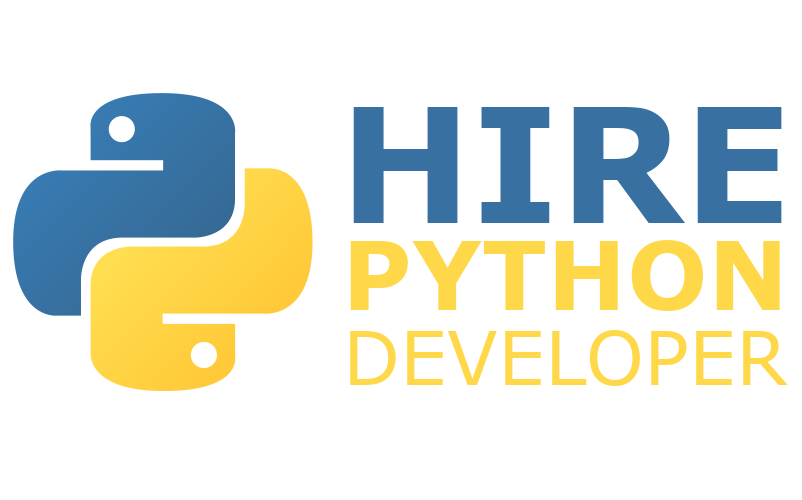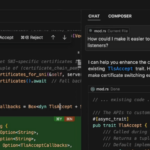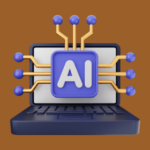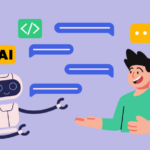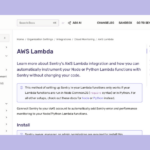How to hire the best Custom Python Developer? Begin with a thorough evaluation of their hands-on experience over academic credentials. Real-world coding triumphs.
When it comes to software development projects, having the right team in place is crucial to success. That’s why it’s essential to hire the best custom Python developer for your project.
With the rising demand for Python developers, the process of finding the right one can be overwhelming. But fear not, we are here to guide you through the process.
Key Takeaways:
- A custom Python developer is essential for efficient and effective software development projects.
- It’s important to define your project requirements and evaluate potential developers before making a hire.
- The negotiation process and onboarding collaboration are also crucial steps for successful project completion.
Understanding the Role of a Custom Python Developer
When it comes to software development, Python is one of the most popular programming languages, thanks to its simplicity, versatility, and flexibility. A custom Python developer is a professional with expertise in developing applications, software, and tools using Python. Their primary responsibility is to write clean and efficient code to meet clients’ requirements and specifications.
Custom Python developers are highly skilled professionals with a deep understanding of Python and its associated libraries, frameworks, and tools. They are proficient in various aspects of software development, such as designing, coding, testing, debugging, and maintaining software solutions. They are also familiar with software development methodologies, including Agile and Scrum.
Skills of Custom Python Developers
Custom Python developers possess a range of skills that make them essential for any software development project. Some of these skills include:
- Proficiency in Python programming language and its associated frameworks such as Django, Flask, and Pyramid
- Ability to design, develop, and maintain software applications using Python
- Knowledge of database management systems, SQL, and NoSQL databases
- Skills in data analysis and visualization using Python libraries such as NumPy, Pandas, and Matplotlib
- Experience with software development tools such as Git, JIRA, and Bitbucket
Custom Python developers should also be able to write clean, well-documented, and efficient code that conforms to industry standards and best practices. They should have excellent problem-solving skills, attention to detail, and the ability to work independently or as part of a team.
Defining Your Project Requirements
When hiring a custom Python developer, it is essential to define your project requirements clearly and specifically. Without a clear understanding of your project needs, it can be challenging to find the right developer who can meet your objectives.
To start defining your project requirements, consider the following questions:
- What is the purpose of your project?
- What are the specific features and functions you want to include?
- What is your timeline for completing the project?
- What is your budget?
- Who are your target users?
- What are your technical requirements?
Answering these questions will help you create a clear and comprehensive project description that you can use to communicate with potential developers.
Creating a Project Description
Your project description should be detailed and concise, outlining your project’s purpose, goals, and requirements. Be sure to include the following details:
- A brief summary of your project
- The specific features and functions you want to include
- Any technical requirements for the project
- Your timeline for completing the project
- Your budget for the project
- Your target audience and users
- Your preferred communication methods
Creating a comprehensive project description will help you attract the right developer who has the skills and experience necessary to meet your project’s needs.
Researching and Evaluating Custom Python Developers
Once you have determined your project requirements, it’s time to start researching and evaluating custom Python developers to find the best fit for your needs. There are several methods to find developers, including online platforms, referrals, and job postings.
When evaluating potential developers, first review their experience and skills with Python and other relevant technologies. Look for evidence of successful projects and expertise in specific areas relevant to your project.
It’s also important to assess the developer’s communication and collaboration skills, as well as their work style and flexibility. Ask about their availability, work process, and how they handle changes to project scope or timeline.
In addition to evaluating the developer’s technical and interpersonal skills, consider their reputation within the industry and among previous clients. Check online reviews, ratings, and testimonials, and seek out references and recommendations from past clients or colleagues.
Online Platforms
Online platforms such as Upwork, Freelancer, and Toptal offer a convenient way to find and evaluate custom Python developers. These platforms typically allow you to review a developer’s profile, portfolio, and ratings, as well as communicate with them directly.
When using online platforms, be sure to carefully review the developer’s profile and work history, and look for evidence of successful projects and relevant skills and experience. Ask questions to assess their communication and collaboration skills, and consider arranging a trial project or test assignment to evaluate their work firsthand.
Referrals
Referrals can be a valuable way to find custom Python developers who come recommended by others in the industry or among your professional network. Reach out to colleagues, mentors, and other contacts to ask for recommendations, and consider attending industry events or meetups to network and connect with potential developers.
When evaluating referred developers, be sure to review their experience and skills, as well as their portfolio and references. Conduct interviews and assess their communication and collaboration skills, and be sure to ask your referral why they recommend the developer and what makes them a good fit for your project.
Whether using online platforms or referrals, it’s important to thoroughly research and evaluate custom Python developers to find the best fit for your specific project needs. Take the time to evaluate their technical and interpersonal skills, assess their reputation and portfolio, and communicate clearly to ensure a successful partnership.
Conducting Interviews with Custom Python Developers
Interviews are an essential part of the hiring process for custom Python developers. They provide an opportunity to evaluate a candidate’s technical proficiency, communication skills, and collaboration abilities. Here are some tips for conducting effective interviews:
Prepare interview questions
Before conducting the interview, prepare a list of relevant questions that will help you assess the candidate’s skills and experience. Ask open-ended questions that require more than a simple yes or no answer. Consider including situational questions that test problem-solving skills.
Evaluate technical proficiency
During the interview, evaluate the candidate’s technical proficiency by asking specific technical questions. For example, ask about their experience with Python frameworks, libraries, and tools. You can also consider providing coding challenges to assess their coding ability.
Assess communication and collaboration skills
Communication and collaboration are critical skills for custom Python developers, especially in a team setting. Ask questions that test the candidate’s communication skills, such as how they approach collaborating with team members and how they handle conflict resolution.
Consider cultural fit
It’s also important to consider cultural fit when conducting interviews. Ensure that the candidate’s values align with your organization’s culture and vision. Consider asking questions that help you assess the candidate’s work ethic, personality, and professional goals.
Overall, conducting interviews is a valuable tool for evaluating the skills and fit of potential custom Python developers. By asking relevant questions and assessing technical proficiency, communication and collaboration skills, and cultural fit, you can find the best candidate for your specific project needs.
Reviewing Portfolios and Past Projects
Now that we have evaluated the skills and experience of custom Python developers, the next step is to review their portfolios and past projects. This is an essential step in determining if they are the right fit for your project.
Portfolios are a collection of a custom Python developer’s projects, showcasing their skills and expertise. It is important to review their portfolio to determine if they have experience working on projects similar to yours. Look for projects that align with your industry, project goals, and technical requirements.
Past projects provide insight into a custom Python developer’s work quality, reliability, and professionalism. Requesting references from past clients or employers is a useful way to verify their work history and performance. It is important to ask for references that are specific to custom Python development to ensure that their past experience is relevant to your project.
When reviewing portfolios and past projects, pay attention to the overall quality of their work, their approach to problem-solving, and their attention to detail. Reviewing their code can also provide insights into their coding style and efficiency. This step is vital to ensure that the custom Python developer has the necessary experience and skills required for your project.
Checking References and Recommendations

After evaluating the technical skills, portfolio, and past projects of potential custom Python developers, it’s crucial to check their references and recommendations before making a hiring decision. This step helps to verify the developer’s work experience and professionalism, ensuring a higher chance of success for the project.
When checking references, we recommend reaching out to previous clients or employers via email or phone to ask about their experience working with the developer. It’s essential to ask specific questions regarding the developer’s technical proficiency, communication skills, and ability to collaborate with the team.
Here are some examples of questions you might ask:
“How did you work with the developer to define project requirements and deliverables?”
“Did the developer demonstrate strong problem-solving skills and attention to detail?”
How did the developer communicate with you and your team, and were they responsive to your requests and questions?
“Did the developer deliver the project on time and within budget?”
Additionally, asking for recommendations from colleagues or industry professionals can provide valuable insights into the developer’s reputation and work ethic. Online forums or social media platforms are excellent resources for finding recommendations and learning more about the developer’s industry presence.
Overall, checking references and recommendations is an essential step in the hiring process for a custom Python developer. It helps to ensure that the developer has the necessary skills and experience to meet your project’s objectives while maintaining professionalism and collaboration throughout the process.
Negotiating Terms and Rates
After evaluating potential custom Python developers and selecting the best fit for your project, the next step is negotiating terms and rates with the developer. This can be a delicate process, as you want to ensure that both parties agree on fair compensation and that the project budget is feasible.
When determining rates, consider the complexity and timeframe of the project, as well as the developer’s expertise and experience. It’s important to find a balance between a reasonable rate and a budget that allows for high-quality work.
In terms of contract terms, ensure that everything discussed is detailed in writing and that the contract is signed by both parties. You may need to include clauses regarding intellectual property, confidentiality, and termination of the contract.
Remember to remain flexible and open to negotiation during this process. It’s not uncommon for discussions to take some back and forth to find a mutually beneficial agreement.
We understand how crucial it is to negotiate terms and rates effectively with a custom Python developer. Our experience has taught us that finding the balance between fair compensation and a feasible budget is key to ensuring the success of a project. Therefore, we always aim to approach the negotiation process with flexibility and transparency to achieve favorable outcomes for everyone involved.”
Onboarding and Collaboration
Once you have selected the best custom Python developer for your project, it is essential to have a smooth onboarding process and establish effective communication channels to foster a productive working relationship.
First and foremost, set clear expectations and define the project’s scope, timeline, and deliverables. This will help the developer understand their role and responsibilities and align their work with your expectations. Provide them with access to all necessary tools, resources, and documentation to ensure they can begin working immediately.
Effective communication is vital to the success of any software development project. Establish regular check-ins and progress reports, and provide feedback on their work regularly. Encourage the developer to ask questions and provide feedback on the project’s progress.
It is also essential to establish a project management system and collaboration tools that work best for both parties. This can include platforms like Trello, Asana, or Jira for project management and Slack or Zoom for communication and real-time collaboration.
Lastly, ensure that you have a contingency plan in place in case of any unforeseen issues or delays in the project. Maintain open communication and proactively handle any potential roadblocks to keep the project on track.
How to Hire the Best Custom Python Developer: Challenges & Solutions

Hiring the ideal custom Python developer isn’t without challenges. Recognizing potential pitfalls can significantly streamline the hiring process.
1. Overemphasis on Academic Qualifications
Consequences: Missing out on self-taught developers with immense practical experience and problem-solving capabilities.
Solution: Focus on practical assessments, coding tests, and real-world problem-solving abilities.
Expert Quote: “In software development, hands-on experience often outweighs theoretical knowledge.” – Anonymous
Key Takeaway: Prioritize skills and practical experience over mere degrees.
2. Overlooking Cultural Fit
Consequences: Mismatched work ethics, value systems, and communication barriers leading to reduced team cohesion.
Solution: Conduct group interviews, value-based questions, and consider trial periods to gauge cultural fit.
Expert Quote: “Technical skills get the job done, but cultural fit ensures it’s done harmoniously.”
Key Takeaway: A good cultural fit leads to better team synergy.
3. Not Verifying Past Work and References
Consequences: Relying solely on interviews can lead to hiring developers who exaggerate skills or experience.
Solution: Always check portfolios, GitHub repositories, and seek feedback from past employers or clients.
Expert Table:
| Method | Importance |
|---|---|
| Portfolio Review | Gauges practical skills |
| GitHub Analysis | Measures consistency & quality |
| References | Validates professional history |
Key Takeaway: Verification minimizes the risk of hiring mismatches.
4. Inadequate Technical Tests
Consequences: Unable to gauge the depth of a developer’s technical proficiency, leading to potential post-hiring performance issues.
Solution: Design tests simulating real-world challenges your projects typically face.
Expert Quote: “A test isn’t just about code—it’s about problem-solving.”
Key Takeaway: Practical, real-world tests provide authentic skill assessment.
5. Not Assessing Soft Skills
Consequences: Communication breakdowns, collaboration hitches, and feedback mismanagement.
Solution: Implement stages in the interview process that evaluate communication, teamwork, and adaptability.
Expert Quote: “The best developers communicate as effectively as they code.”
Key Takeaway: Soft skills are paramount for seamless project execution.
While technical expertise is essential when hiring a custom Python developer, it’s equally vital to consider cultural fit, verify past work, and employ comprehensive testing methods. An ideal candidate will align technically and culturally, ensuring both effective and harmonious project progression.
Conclusions – How to hire the best Custom Python Developer?

How to Hire the Best Custom Python Developer
1. Skill Assessment: Ensure candidates possess essential Python skills. Delve deeper into their knowledge of frameworks like Django and Flask, database management, and tools like Git.
2. Real-World Challenges: Introduce practical tests simulating actual project challenges to gauge their problem-solving ability and coding prowess.
3. Industry Knowledge: Determine their familiarity with your industry. Domain expertise can be invaluable as it often leads to more intuitive and aligned solutions.
4. Soft Skills Evaluation: Beyond coding, assess their communication, teamwork, and adaptability skills. A technically proficient developer must also be a team player.
5. Verify Past Work: Examine their portfolio, GitHub repositories, and seek feedback from past employers. Authenticating their claimed skills reduces hiring risks.
Pro Tip: Remember, hiring the right developer is a balance of their technical know-how, adaptability, and fit within your company culture.
Partner with Us for Expert Custom Python Development Services
At Hire Python Developer, we specialize in delivering top-notch custom Python development services to businesses of all sizes and industries. Our team of experienced developers has a proven track record of delivering exceptional results and collaborating closely with clients to achieve project success.
Whether you need a custom Python application, software integration, or data analysis solutions, we have the expertise and resources to meet your needs. Contact us today to learn more about how we can help you take your software development project to the next level.
FAQs – How to hire the best Custom Python Developer?

What key skills should I look for when hiring a Custom Python Developer?
Answer: Beyond foundational Python skills, seek expertise in frameworks (like Django or Flask), database management, and familiarity with version control tools like Git.
Pro Tip: A strong portfolio showcasing previous custom projects is a testament to a developer’s capability.
Example: If you’re building a web application, a developer’s experience with Django ORM and middleware can be invaluable.
How do I gauge a developer’s problem-solving ability during the interview?
Answer: Present real-world scenarios or challenges your project might face. Evaluate their approach, logic, and solution feasibility.
Pro Tip: It’s not just about the right solution; their thought process and adaptability are equally crucial.
Example: Ask about a time they optimized a slow, data-heavy process or tackled unexpected bugs in past projects.
How important is a Custom Python Developer’s understanding of my industry or domain?
Answer: While Python skills are paramount, understanding your industry can lead to more intuitive solutions and better alignment with business goals.
Pro Tip: If they lack domain expertise, assess their willingness and speed to learn and adapt.
Example: A developer with experience in healthcare might be familiar with HIPAA compliance—a big advantage for related projects.
Should I focus more on their technical skills or soft skills?
Answer: Both are vital. Technical prowess ensures efficient code, while soft skills like communication and teamwork ensure smooth collaboration.
Pro Tip: A technically adept developer who can’t communicate or understand feedback can hamper project progress.
Example: Regular project updates and constructive feedback sessions are as crucial as deploying bug-free code.
How can I be sure they’ll be a good fit for my team and company culture?
Answer: Involve your current team in the interview process. Evaluate their cultural fit, adaptability, and alignment with your company’s values.
Pro Tip: A trial period or initial small project can give insights into their work ethic and compatibility.
Example: If open-source contributions are a company value, a developer’s active GitHub profile can be a positive indicator.
Matthew is a technical author with a passion for software development and a deep expertise in Python. With over 20 years of experience in the field, he has honed his skills as a software development manager at prominent companies such as eBay, Zappier, and GE Capital, where he led complex software projects to successful completion.
Matthew’s deep fascination with Python began two decades ago, and he has been at the forefront of its development ever since. His experience with the language has allowed him to develop a keen understanding of its inner workings, and he has become an expert at leveraging its unique features to build elegant and efficient software solutions.
Matthew’s academic background is rooted in the esteemed halls of Columbia University, where he pursued a Master’s degree in Computer Science.
As a technical author, Matthew is committed to sharing his knowledge with others and helping to advance the field of computer science. His contributions to the scientific computer science community are invaluable, and his expertise in Python development has made him a sought-after speaker and thought leader in the field.
